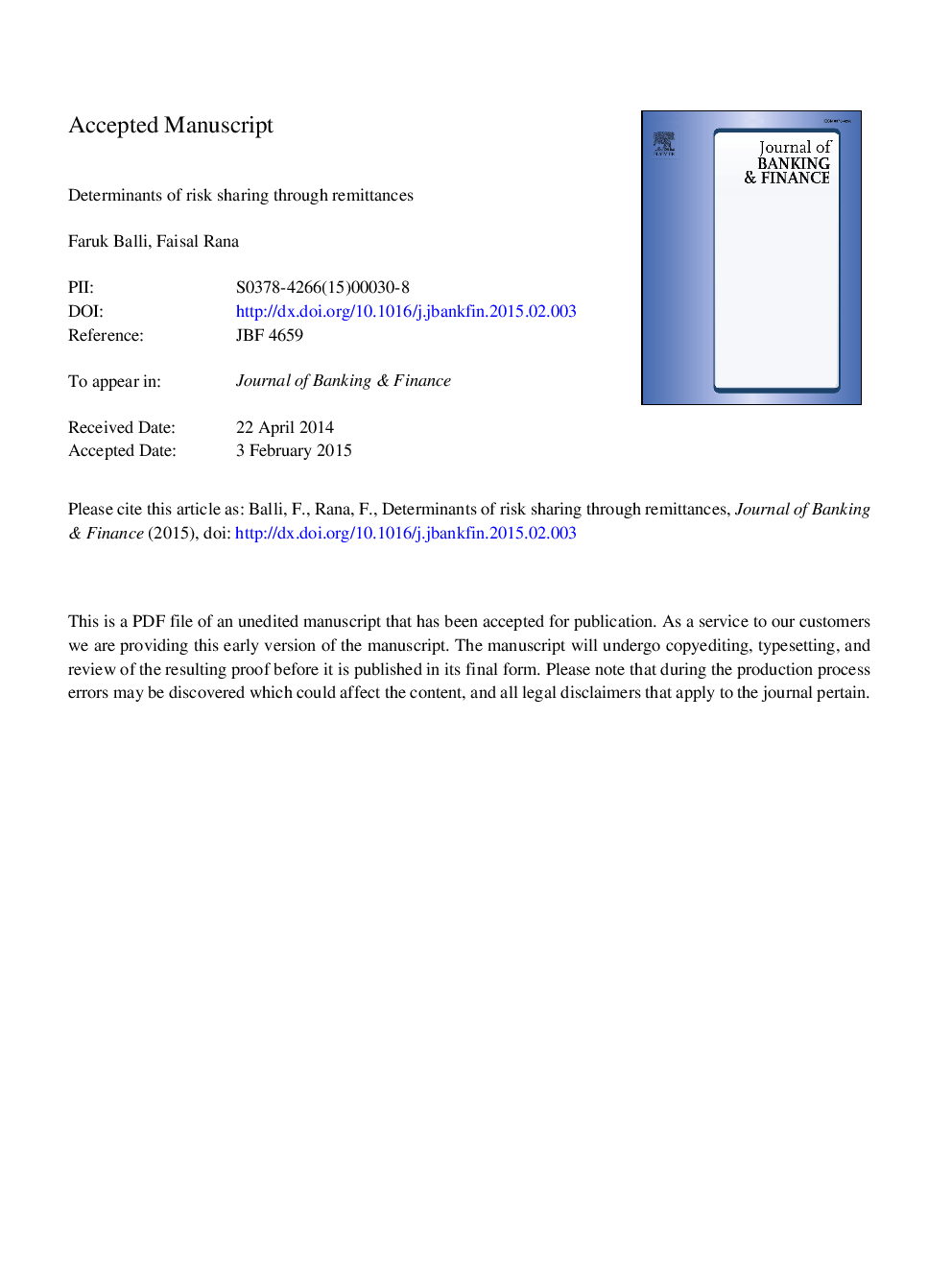| Article ID | Journal | Published Year | Pages | File Type |
|---|---|---|---|---|
| 5088627 | Journal of Banking & Finance | 2015 | 32 Pages |
Abstract
The sending of remittances is a decentralised decision of migrant workers. Nevertheless, it has macroeconomic implications in providing insurance against domestic output shocks in the recipient economies - a phenomenon known in literature as risk sharing (income smoothing). Using a large sample of 86 developing countries for the period 1990-2010, we establish that remittance inflows serve as an important channel through which risk sharing takes place in the developing world. The extent of income smoothing via remittances stands at around 5% on average. Subsequently, we explore the underlying factors that explain countries' ability to share risk through remittances. The diversification of migrants turns out to be the leading explanation for the extent of risk sharing via remittances: the more diverse the migration destinations of a country, the higher the amount of risk shared. In addition, the size of remittance flows appears to have a strong and statistically significant impact on enhancing risk sharing. We also find suggestive evidence that a higher proportion of remittances originating from farther countries facilitate more risk sharing compared to those originating from neighbouring or regional economies.
Related Topics
Social Sciences and Humanities
Economics, Econometrics and Finance
Economics and Econometrics
Authors
Faruk Balli, Faisal Rana,
